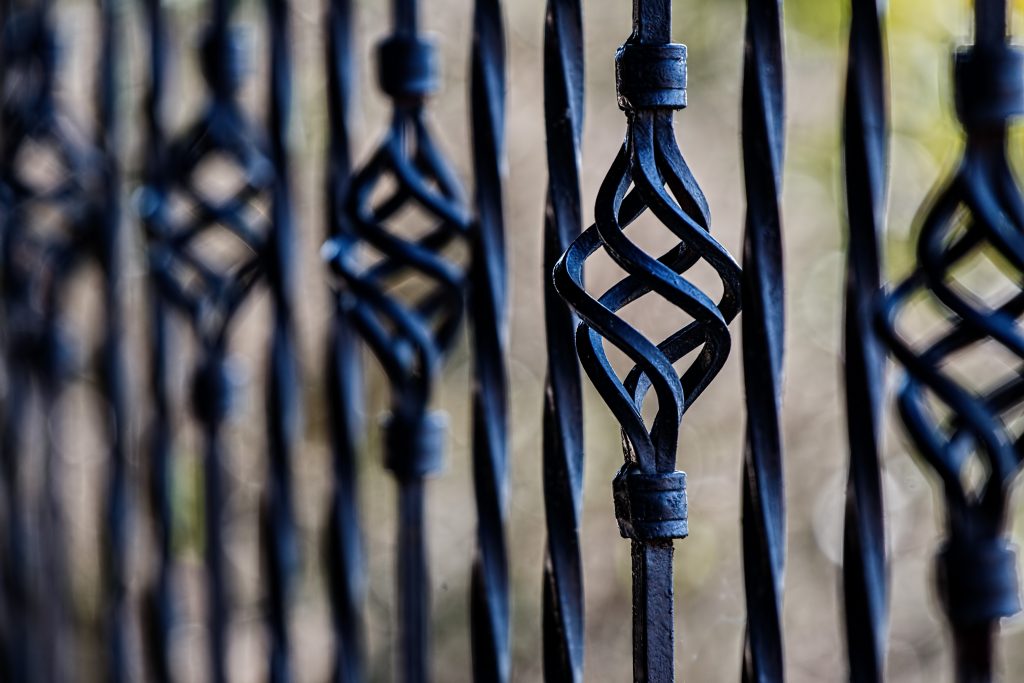March 2019
 At my age — so goes the story — I’m supposed to be moving more and more toward enjoying my memories. Following that strategy means, however, that you should’ve curated your experiences carefully throughout your earlier life so when you hit Golden Oldie status there’s only gold to show for your trouble without any dross.
At my age — so goes the story — I’m supposed to be moving more and more toward enjoying my memories. Following that strategy means, however, that you should’ve curated your experiences carefully throughout your earlier life so when you hit Golden Oldie status there’s only gold to show for your trouble without any dross.
Oops. That’s not gonna fly. So I’ve come up with another strategy I think will work much better and be a lot more fun into the bargain. If we’re gonna keep a smile on our lips and a song in our heart then dredging up the past is absolutely the last thing to do. Trust me on that one, Bridget, I know whereof I speak. We need a reset button.
In thinking about my own memories I’m reminded of how we manage our electronic memory. The brain is a kind of computer, so they say, and it certainly stores a whole bunch of stuff — in ways we don’t really understand. Memories get triggered seemingly willy-nilly by situations or experiences. I don’t think inside my head, “OK Siri, find this for me.” It just pops up through some mechanism I don’t consciously engage. We can ignore or suppress involuntary memory or go nuts and pretend it’s somebody else’s rather than our own, but it still comes up like a brain burp from the neurons through some mechanism that still has us flummoxed.
After spending so much of life at somebody’s beck and call through years in the world of work I thought it high time to strike out for freedom before it’s too late — including freedom from my own past. I don’t want all the limitations I’ve lived through — accepted by dint of necessity and dealt with well or badly depending on the circumstances and my internal resources at the moment — to define this period of freedom that represents my swan song on the Planet. It’s the first time in my life I’m truly home free. I never again have to stifle myself and do as I’m told by some boss or professional circumstance over which I have no control. I don’t have any family limitations. My health is excellent. I can do whatever I bloody well like. So it’s time for the freedom train to leave the station of those Golden Oldie neurons, too — no substitutes will do.

When I began pondering this issue the best analogy I found for my new strategy is putting an old hard drive on cloud storage. When you reach retirement age your brain is like a huge USB drive crammed full of stuff. Most of the contents are not in RAM (thank God) but it’s all there. Oh boy is it all there. If you ask any of my family members about how my hard drive works you’ll likely hear, “Oh God, he remembers everything.” If somebody wants to know the name nobody can remember of the person in that old pic of Grandma in her young days in the family album, the question comes to me. Nine times out of ten it will spark a memory of some conversation I had when Grandma and I were looking at the old pics and I’ll cough up the info. It’s not a task I set myself, mind you, it’s just the way things worked out. The same thing happened to me in the workplace. Can’t remember what we decided last year about that policy revision? Go ask You Know Who, he remembers everything.
As long as memory serves this purely informational role I don’t mind. What I do mind is when situations or experiences cause an upsurge of memories with less than savory associations. That can really put a dent in your day. It can also befuddle your thinking if the memories involve things of a disagreeable nature bound up with strong emotion. It’s these “eruptions” as I call them that I’m sick to death of and want to stop. And dadgummit, stop they will come hell or high water.
It’s not a question of sticking your finger in the dyke of each eruption as it occurs — that would be exhausting and truly a task of Sisyphus. What’s needed instead is a structural change in the way memory works, a change brought about through a conscious strategy with a specific purpose. So here’s what I’ve come up with to deal with that particular crown of thorns.

The strategy has come to me slowly. I had a bit of luck because a major life change is going on at the same time, which sets the stage for thinking outside the box. As I move into a different lifestyle paradigm — global nomadism — it’s clearly time to do a wholesale reinvention of self. Memory figures into that process in a big way.
My strategy has two prongs. The first is what I call The Force Field. It’s a shift in the mental environment that creates a space into which memory can’t intrude willy-nilly because it’s already full of something else. What fills it up? Mindfulness of an intent to stay focused on the present and a sense of self that projects from the present into the future. I’d be more than happy to credit Buddhism with the inspiration for this approach but I’d be fibbing if I said that’s where it came from. Buddhist mindfulness is based on conceptual neutrality. My mental force field is a very active thing exerting outward pressure on the mental environment all the time, like the air filling a balloon. Memory has to have space into which to erupt otherwise it stays where it otherwise hangs out — and it beats me where that actually is. As long as it’s not in my face I don’t care, to be perfectly honest. The mysteries of human consciousness will not be revealed before I kick the bucket, that’s as clear as the nose on your face, so I’m not gonna sweat the details.
The second prong of the strategy is another active measure: the engagement of new experience as a mainstay of daily life. This affords another means of occupying the real estate of the mental environment in a way that follows conscious choice and preference. “Conscious” is the key word here. I choose the experiences I engage now for the most part — there’s still the death and taxes thing but oh well LOL … It’s up to me to populate my mental environment with things I want there. When the occupation rate crosses the right threshold memory doesn’t really figure into the dynamic very much because there’s no space for retrospective awareness of any large scope. My change in lifestyle offers every conceivable support for that mental regimen because new stuff comes my way all the time. Global nomadism is all about letting no moss grow under your feet. At the first sign of moss you can pack your bags and head off to somewhere new if you want. Yeehaw. New, new and more new, all the time.
A corollary aspect of this strategy is a shift in the importance of memory itself. As someone who’s been known my entire life as one of those steel-trap minds that retains everything, I now find myself quite comfortable letting details slide. It goes with the territory of the new mental environment I’m in the process of configuring. What matters in the contents of consciousness is significance. Does it really matter if I remember what happened to Cousin Robert when he was 12? The answer is: NO. That’s his business. The family can start an archive if it wants to retain such details for posterity, I’m done with it. What’s important to me is remembering what I just learned about my next destination and what I discover each day exploring the natural and cultural environments I engage as the nomad I become. It’s about freedom from the past but also quintessentially about a shift toward a focus of awareness on what’s going on front and center because you’ve put it there yourself. In that regard I take my cue from the Buddhist concept of mindfulness. It makes the business of living very direct, very hands-on and very engaging. What’s not to like about that? It beats hands down the Death By Cubicle I lived for so many decades.

When you reach retirement age it’s safe to say that the you of you is baked in whether you remember every detail of your past or not. If you hit Golden Oldie status and still haven’t figured out what you wanna be when you grow up, you’ve got bigger issues to deal with than retirement, take my word for it. I assume that I’m a known quantity now, no big surprises likely to come down the pike. My job in this phase of life is to expand and enhance the beingness I’ve built up to this point, not curate it based on past experience. Fortunately for me that approach is perfectly consonant with my life circumstances, with anyone’s life circumstances once they’re free of the work world, provided there’s some cash in the bank. The responsibility of augmenting the self at this stage of life is wholly mine. Why on Earth would I accept the limitations of the past as a defining parameter for my future? I’d be a fool to do anything of the sort.
That brings us to the issue of identity, which is core to all these considerations. I think I had an advantage in my earlier life by being an outlier. Throughout my adult life identity for me was never overly bound up with societal values and expectations. I took on the professional persona required by my career, true enough, and once that ended it took me a while to gain my sea legs in the new expanse of freedom in which I found myself. As I’ve moved forward into that freedom I find that my impulse toward self-creation is continual. It becomes an ongoing life strategy rather than a discrete task to be done iteratively on a periodic schedule. It can happen any day at any time the need or desire arises. I call it “living in Ninja mode.” But there’s no defensive sense about it, the Ninja part comes from the poise of awareness on shaping responses to the moment so they fit like a key in a lock. The goal is the creation, not the defense of experience. The underpinning desire is to extend the self into the future rather than to protect the self from an incursion from or a repetition of the past. Therein lies the major difference.
A smile comes to my lips often these days as people embedded in societal roles flounder in their attempts to categorize me and my life. It doesn’t really matter to me what opinion others hold of my path. I’m the one travelling it and they have no useful advice to give me from their position of entrenchment. Been there, done that, got the T-shirt, thanks so much. I’ve written in other posts about the process of throwing overboard the societal patterns associated with retirement because they’re nonsensical for creating the kind of experience I want. Just as I wouldn’t grab a box-end wrench to do a job that needs a screwdriver, using a retirement paradigm with a focus on large swaths of idleness punctuated by twice-weekly bingo in the recreation hall is not the right tool to use for the kind of retirement experience I’m intent on creating. I’m making it up as I go along and it’s working just fine without any bingo for this Bonzo.

Retirement brings with it a major change in social interaction patterns, which also has its part to play in memory management, I find. The social construction of memory is an aspect easily overlooked until the network of interactions engendering it disappears. After I left the world of work and moved once again outside the USA away from close proximity to relatives I found myself in a memory-free zone. Nobody knows enough about me to have an idea of my history nor does anyone really care. The memories I brought with me are all from other places as well as other times so their intersection with my present becomes doubly tangential. After nearly two years in that kind of environment my stance toward memory itself has changed radically in a way that serves the purpose I describe here to a T. Memory has value only in the short term from a practical standpoint. There’s no need to send stuff to cloud storage. And there’s too much new stuff in my head to leave space for old things to intrude, which is exactly the way I like it.
Being around people who don’t know me well also gives me the freedom to choose the focus of my own narrative of self. What do I say when people ask me what I’ve been up to in the past? The fact that I worked in such-and-such a profession for years seems now legitimately reducible to a single sentence purely denotative in nature. Who cares about the details? Why should I myself care about the details at this point? The only value memory now has is to offer a cautionary tale or enlighten through example what happens in the present. I could completely refashion my history and nobody would catch me out in the act of amendment. I’ll admit that directly after retiring it seemed very odd indeed never to talk about my work life and the years of experience associated with it. Now it hardly crosses my mind save to remind me occasionally how good I have it compared to the long years spent schlogging it out in the Death By Cubicle paradigm.
In this phase of my life it makes all the sense in the world to establish a different regimen for management of my mental contents, a regimen for which I’d formed no strategy before I hit Golden Oldie status. It’s too big a stretch to attempt a strategy for such things until you find yourself in the room where it happens. I can’t imagine that at some point in the future when the years catch up with me I’ll find myself a comfy chair and spend the hours reminiscing about The Good Old Days. The habits of mind I’m developing now will surely continue when the flesh is less willing, I have no doubt. Even at that point, however, my focus will stay on the present and the future rather than on the past. I already did the life review thing during the last few years before I retired. That box is ticked. No need to go over the same ground again. My new motto is: don’t sweat the old stuff.

In figuring out this new strategy I’ve come to an organic rather than an electronic model of memory. As I observe the function of memory in this phase of life I see that it’s like a metabolite for focus on the present. What has happened in the past doesn’t lodge itself in some hard drive in my head, it’s digested to form the body of the present. This state of affairs has everything to recommend it based on my personal experience. I feel much more integrated as the past becomes part of the present. The change also has a salutary effect on identity: what’s in the past can’t be changed, true, but integrating it into the present means that its significance is defined by its relationship to current experience and awareness. It’s the best way I can think of to keep moss from growing on your own sense of self.
If all this were not enough, just think how much I save by not needing cloud storage any longer. 🙂
I’m going to stick with this organic model for memory for the rest of my days, I think. I’ve already lost the sense of my past being chunks of stuff lying somewhere behind me that I drag along with me as I move into the future. Whatever weight my memories had has been neutralized by metabolizing them into the continuum of my present and future. It leaves me feeling light on my feet at this stage of the game, which is good for a nomad. It also leaves me feeling very free, very unbounded by the life I’ve lived up to this point. That’s also a good thing for somebody who’s intent on radical and continuous innovation as a way of engaging the world.
So there’s that done and dusted. My memories may do what they like in their involuntary chemical pathways inside my head, it really doesn’t matter to me. Eruptions are becoming ever rarer now, and when they happen I know it’s because there’s something I need to digest and incorporate into my present awareness. That’s usually the work of a moment — and if it isn’t then the process of breaking it down and absorbing its substance is worth the benefit my awareness gains as a result.
I can’t lay claim to a particularly good understanding of identity earlier in my life — its mechanisms and dynamics are so subterranean it’s difficult to know what comes from where and how it comes to be. That said, I’m pleased — very pleased — to find myself free of much of the socially constructed identity I carried in the past. That sense of self has disappeared and I don’t miss it. I’m perfectly content to move forward in life having a sense of who I am without that sense being definable down to the last detail. In terms of art I’d say I’m partly abstract or impressionist now rather than hard-core realist/representational. There’s nothing uncomfortable about that condition, trust me. It gives me a lot of freedom I’d have been only too happy to have earlier in life. And as long as I keep the checkbook balanced, it’s all good.
All this is just to say that there are unexpected advantages to becoming a Golden Oldie that nobody tells us about. If you’d told me twenty years ago that when I reached my current age I’d find myself with a completely different conception of memory and how it works in life, I’d have smiled and tapped the tip of an index finger to my temples. It just goes to show that life is full of surprises. This is one of the good ones.

